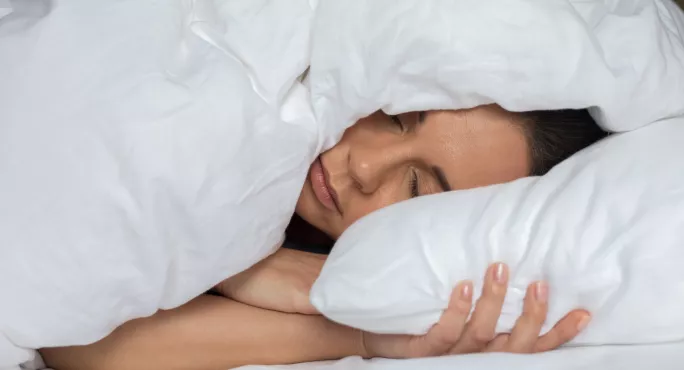- Home
- How to sleep well this summer - and why it matters
How to sleep well this summer - and why it matters

We are all psychotic. We all hallucinate regularly, and we’re completely and utterly convinced that our hallucinations are real.
Of course, I’m talking about dreaming, and the phases I’m describing mostly happen during a specific type of sleep called Rapid Eye Movement (REM) sleep.
The meaning of dreams
As a psychology teacher, I’ve found that dreaming is one of the topics that my students are most interested in.
This used to be a problem because it was also one of the areas that psychology was least sure about.
In class, we would talk about Freud’s ideas of wish fulfilment; the work of Rosalind Cartwright, who saw dreams as a way of rerunning and working through troubling experiences; but also theories such as the activation-synthesis hypothesis, which basically argues that dreams are the result of completely random brain activity.
Just imagine: this is something that every human does for several hours every night, which takes up huge amounts of energy, and we still didn’t really know what it was all for.
The reality of dreams
Over the past decade, this has changed.
In fact, it’s Rosalind Cartwright who has been increasingly vindicated by the fascinating story about dreaming, which unfolded largely due to increasingly sophisticated neuroscientific research.
What this more recent research found was that REM sleep and dreaming takes a troubling memory and gradually detaches the painful emotions from it.
That means that, over time, we’re able to process these difficult experiences and bring closure to them.
But, as well as dealing with emotional experiences in the past, REM sleep also helps us to deal with them in the future. For example, if you deprive people of REM sleep, they become worse at decoding other people’s expressions.
The subtle differences between someone looking annoyed, hostile and furious become blurred. It’s as though REM sleep is tuning our emotion perception, keeping it in focus. Without that fine-tuning, the world is much less predictable and therefore feels more scary.
As well as emotional wellbeing, sleep is an amazing super-drug, boosting our immune system and helping to see off a huge variety of physical illnesses.
The power of sleep
In fact, there’s not much that sleep doesn’t help with.
It’s been found to make you more attractive, more fertile, less likely to be obese, less likely to be depressed, less likely to be anxious, and less likely to develop cancer, dementia, stroke, heart disease, diabetes and dementia.
And, if you’re male, sleep deprivation is associated with a lower sperm count and smaller testicles.
So, there’s a lot at stake.
Over the summer, we all have the chance to get some good sleep practices in place - so there are some rules worth following.
1. Eight hours
First, you need to aim for at least eight hours of sleep.
This usually involves giving yourself an eight-hour “sleep opportunity”, which actually means having at least nine hours between your bedtime and the time you have to get up.
That way, you allow for time to drop off and time to get up while still giving yourself time for eight hours of sleep.
And these eight hours should start before 11pm.
2. Have a routine
Related to this, you should work out your sleep routine and keep to it as much as possible, even during the holidays and at weekends.
3. The environment
Your bedroom should be cool and dark.
Black-out material can be really useful here if you have street lamps outside your window, or if you need to sleep while daylight is coming in.
You can line your curtains with it and get complete darkness whenever you need it.
4. Watch your diet
If you want to get good-quality sleep, you need to stay off coffee and alcohol from about midday.
The problem with alcohol especially is that it can seem as if it helps with sleep, but in fact it makes the quality of that sleep much worse.
Share your wisdom
As teachers, we need to be able to speak with children about sleep and how to do it well, because it’s the bedrock of wellbeing and also of learning.
There’s increasing evidence to show sleep’s role in memory consolidation, but also the way that sleep deprivation hinders our ability to absorb new facts.
Add to that the physical and emotional benefits and sleep really should be the starting point of our pastoral conversations.
So, let’s get sleep right ourselves. Then, we’ll be ready - physically, emotionally and intellectually - to pass on these vital sleep skills to young people.
Aidan Harvey-Craig is a psychology teacher and student counsellor at an international school in Malawi. His book, 18 Wellbeing Hacks for Students: using psychology’s secrets to survive and thrive, is available for pre-order. He tweets @psychologyhack
Keep reading for just £1 per month
You've reached your limit of free articles this month. Subscribe for £1 per month for three months and get:
- Unlimited access to all Tes magazine content
- Exclusive subscriber-only stories
- Award-winning email newsletters



